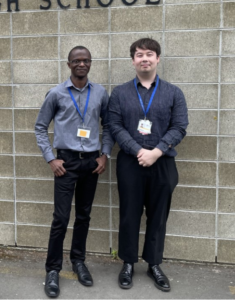Teenagers say they know about the dangers of vaping but increasing numbers of them still do it.
That’s one of the findings from an ongoing University of Otago, Christchurch research programme focused on understanding what rangatahi know about the health dangers of vaping and developing an education programme to help.
The programme is led by paediatrician Associate Professor Philip Pattemore. He says in the first phase researchers examined young people’s use of vapes and knowledge about its health impact.
“Teenagers said they knew about the dangers of vaping but they are doing it in increasing numbers so we need to develop a relevant, educational programme that can be done in schools.”
Associate Professor Pattemore says the research also found young people vaped for curiosity and enjoyment and to fit in with their friends, while adults tended to vape as a tool to reducing or quitting cigarettes. Despite legislation forbidding the sale of vape products to those aged under 18, rangatahi say they can easily get them from family, friends and peers.
The research team developed an information programme about vaping and are piloting it in a number of schools around Christchurch. They are trialling both in-person and online delivery of the programme.
As part of his Summer research project at the University of Otago, Christchurch, medical student Jonathan Cox, alongside supervisor Dr Ben Wamamili, ran the programme at Mairehau High School and is assessing results of the programme’s overall impact with rangatahi.
“As a medical student I’ve learnt a lot about the dangers of smoking, but not vaping, so there is room for more information there. High school students also need more education about why the legislation is there to protect them from the vaping industry and the health effects of this addictive habit.”
The experience inspired Jonathan to become a champion for more fact-based education about the health risks of vaping. He has written a letter to the New Zealand Medical Journal advocating for more education for medical students about the dangers of vaping, so they can better inform patients. The letter also advocates for more school-based education for young people about the health risks of vaping.
Jonathan is being supported in his research mahi by Research for Children Aotearoa experts.
He says it was incredible being part of this important, ongoing study, which he hoped would make a real difference for young people.
What are the health impacts of vaping?
- Vapes contain nicotine which is addictive and a stimulant like caffeine and can impair adolescent brain development, sleep quality and mental health.
- Addiction leads to repeated exposure over prolonged periods to any additives contained in the vapes, most of which have not been tested for long-term safety, and some of which are known to be harmful even in the short-term.
- Vaping can result in lower lung function, and inflammation in the airways and in the blood vessels, similar to that seen with tobacco smoke, which can lead to lung and cardiovascular disease.
- Teenagers who vape have an increased risk of graduating to using other drugs such as tobacco cigarettes or other substances.
- The tobacco industry has heavily invested in e-cigarettes, and embraced the ‘harm-reduction’ approach, which suggests that they envisage the upsurge in vaping as a way of maintaining and recruiting nicotine-dependent users.
For more information, contact Phillip Pattemore philip.pattemore@otago.ac.nz

